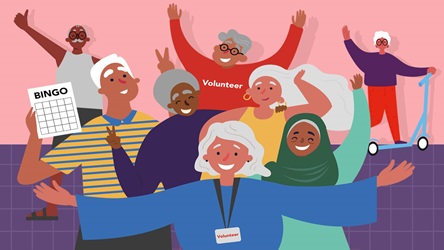Trending: The Dementia Issue

A Trend To Watch
Dementia affecting younger people
As people live longer, more will suffer from age-related diseases such as dementia. Around 50 million people worldwide have dementia, and the number is expected to climb to 82 million by 2030. Typically affecting those over 65, dementia is now on the rise among younger people. In Singapore, the National Neuroscience Institute diagnosed four times as many people under 65 with dementia in 2017 as compared to 2011. Young-onset dementia now makes up about 10% of dementia cases. As symptoms can appear in patients as early as in their 40s, those with young-onset dementia may have greater financial burdens if they lose their job as they struggle with language, behavioural changes and remembering everyday tasks. To support those with dementia, many countries have started dementia-friendly spaces, such as supportive neighbourhoods. These towns are designed to enable those with dementia to continue living a full life with the help of the community. Singapore has six dementia-friendly communities and plans to increase the number to 15.
Global Outlook
Caring for the vulnerable
How different countries are preparing for ageing populations

Singapore
Dementia-friendly town Yishun has added eight more “go-to points”, where the public can take dementia patients who are lost. The Agency for Integrated Care recently launched the Dementia Friends app as a resource for caregivers of dementia patients and for supporters to help look out for missing seniors. Several parks already have therapeutic gardens for everyone, including dementia patients, to be active and contemplative in nature to improve mental health.

Japan
One in five elderly Japanese will have dementia by 2025. In 2015, the Orange Plan, a national strategy to address dementia, was launched. Community members learn skills for helping people with dementia, and wear orange bibs or bracelets to raise awareness and offer help to anyone who is lost or in distress. In 2017, the Restaurant of Order Mistakes, a pop-up initiative in Tokyo, hired dementia patients as staff to drum up awareness about the illness.

The UK
The GameChanger project invites adults without dementia to play free and simple five-minute “brain games” to help researchers understand how dementia and the brain works. It is a nationwide project supported by University of Oxford’s Big Data Institute and the UK Alzheimer’s Society. The Alzheimer’s Society also has a Dementia Friends initiative, where people can sign up to learn about living with dementia so that they are better equipped to help others.

The Netherlands
Dementia care goes back a long way in the Netherlands, with the idea for the first Alzheimer's Cafe proposed by Dr Bere Miesen in 1997. There are now 230 Alzheimer Cafes across the country. The world’s first dementia-friendly village, De Hogeweyk near Amsterdam, is home to 150 residents who live in six-room houses each designed to keep life as normal as possible for them.

Australia
According to Dementia Australia, dementia is the second leading cause of death in the country. Australia’s first dementia-friendly village, Korongee Village, will be built in Tasmania and modelled after Amsterdam’s De Hogeweyk. The village will cater to about 90 people, with 15 specially-designed houses, a supermarket and other amenities designed to ensure that residents remain active. The local community will be trained to care for people with dementia.
Explainer
Dementia vs Alzheimer's

Learn the Lingo

Cognitive impairment
This refers to difficulties in memory, learning, judgement and concentration. Dementia patients often show cognitive impairment, such as failure to recall information. In more advanced stages, patients may no longer recognise the faces of loved ones or become hostile to caregivers.

Dementia-friendly
A dementia-friendly community is one where people with dementia are understood, respected and supported. Business owners and neighbours help to accommodate dementia sufferers and look out for at-risk patients. The goal is to increase the quality of life for patients.
- POSTED ON
Jan 31, 2019
- TEXT BY
Audrey Ng
- ILLUSTRATION BY
Mushroomhead









